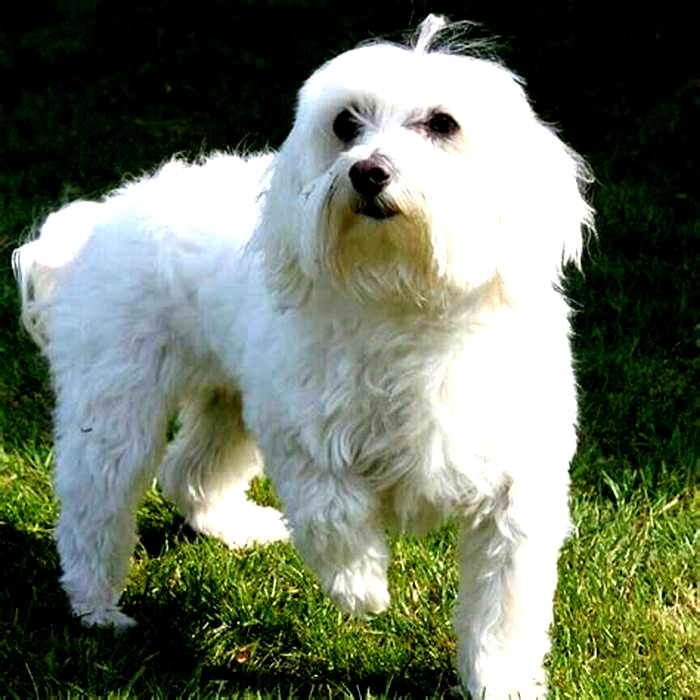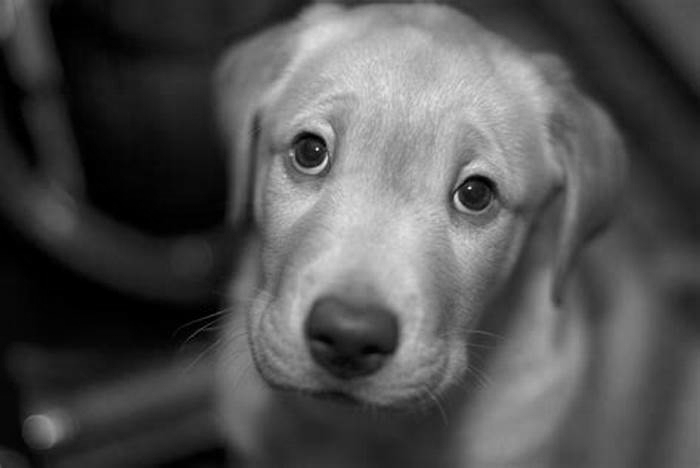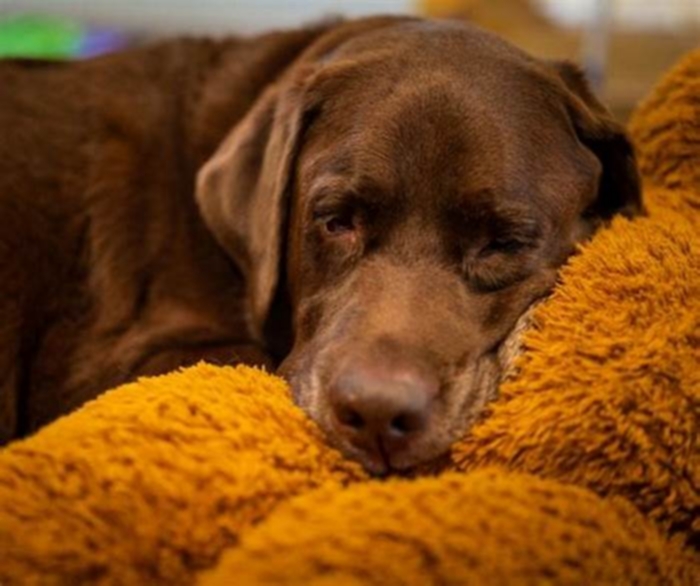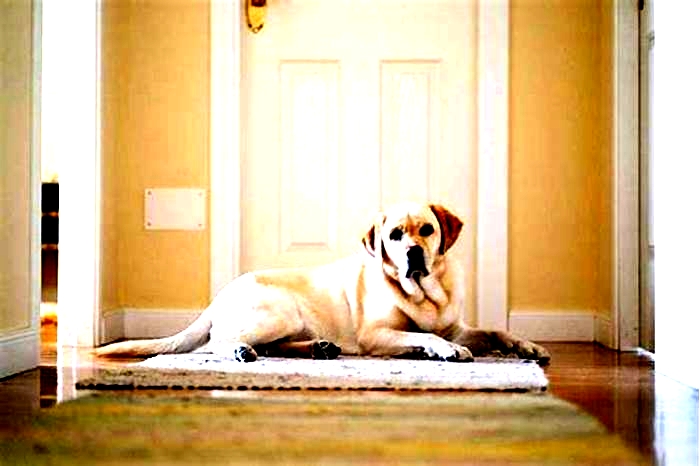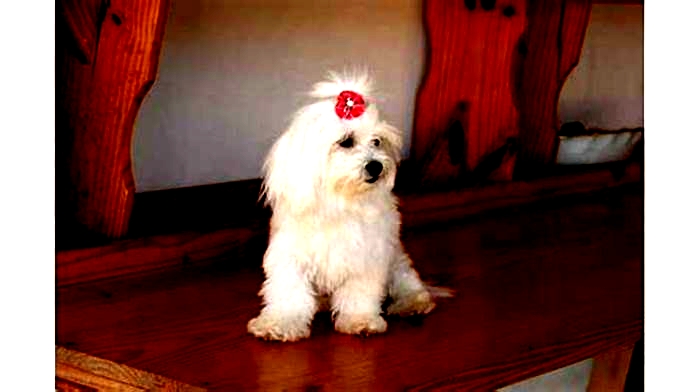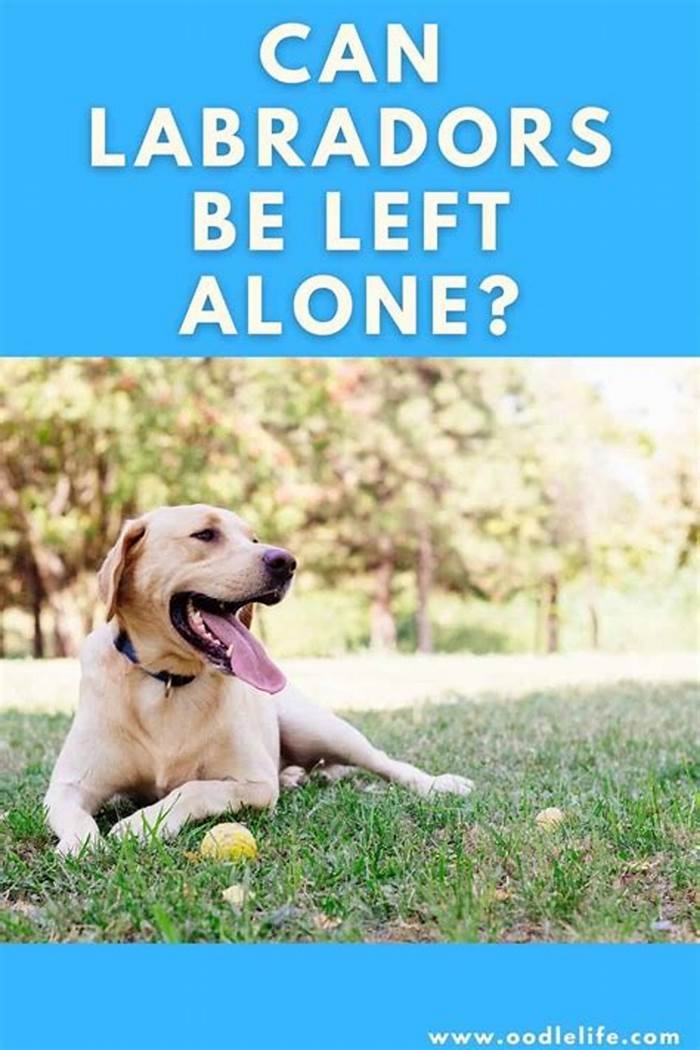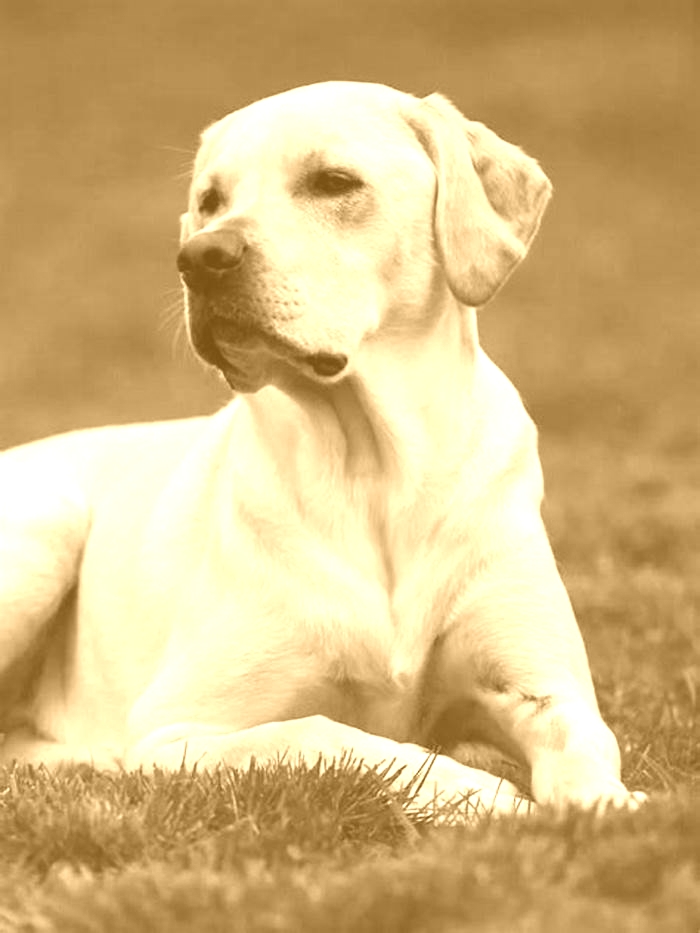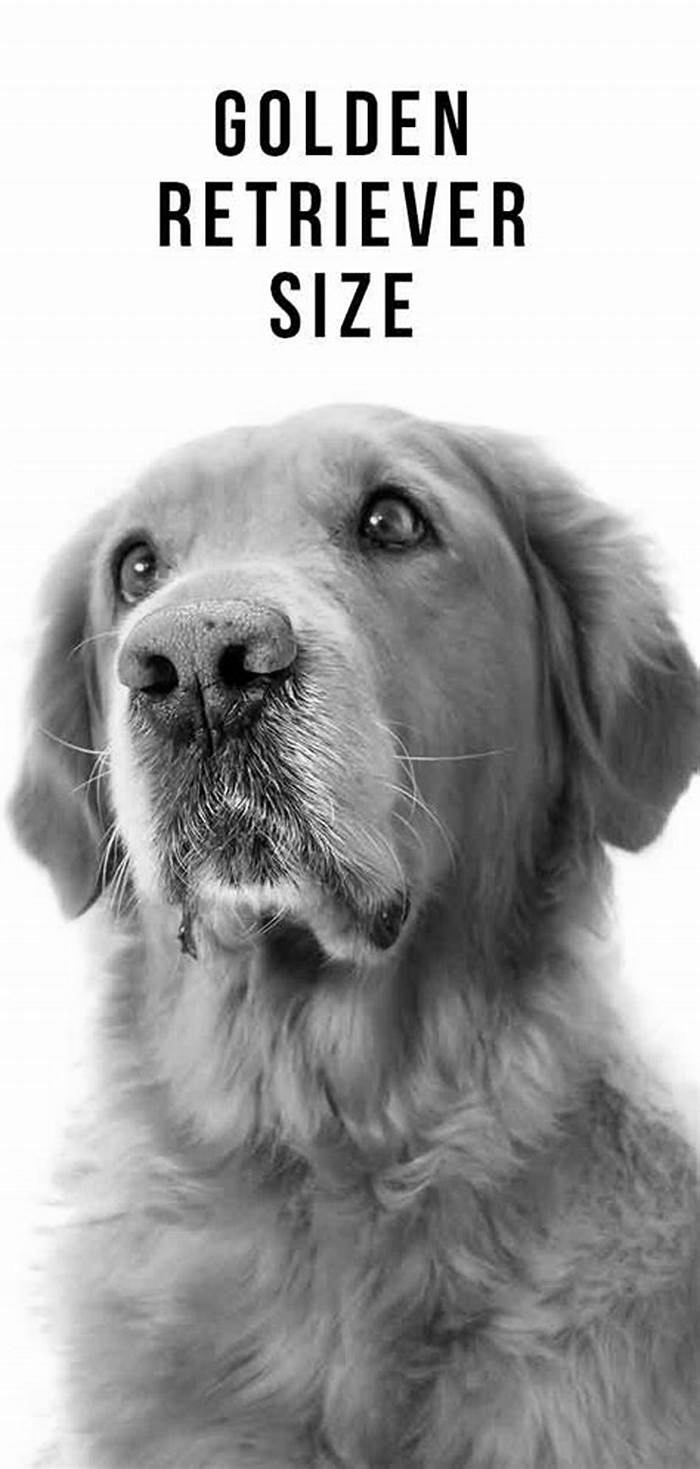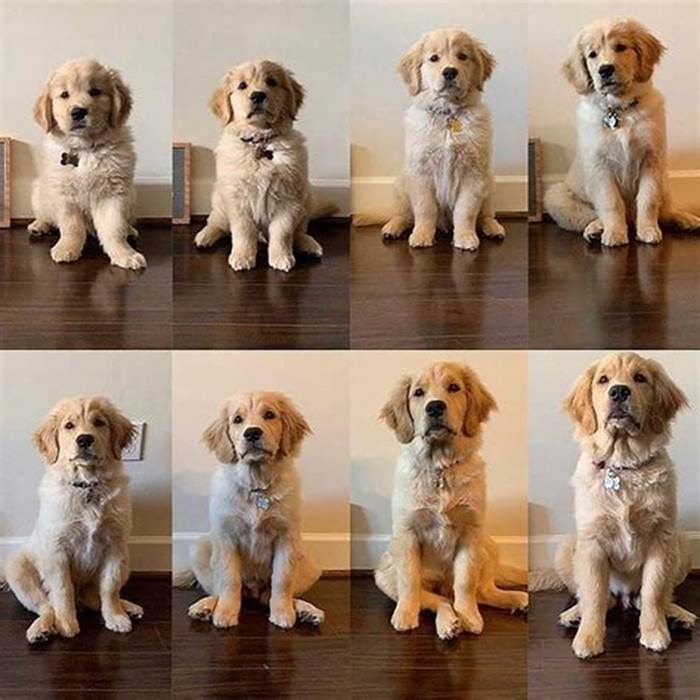Can Golden Retrievers be left alone for 8 hours
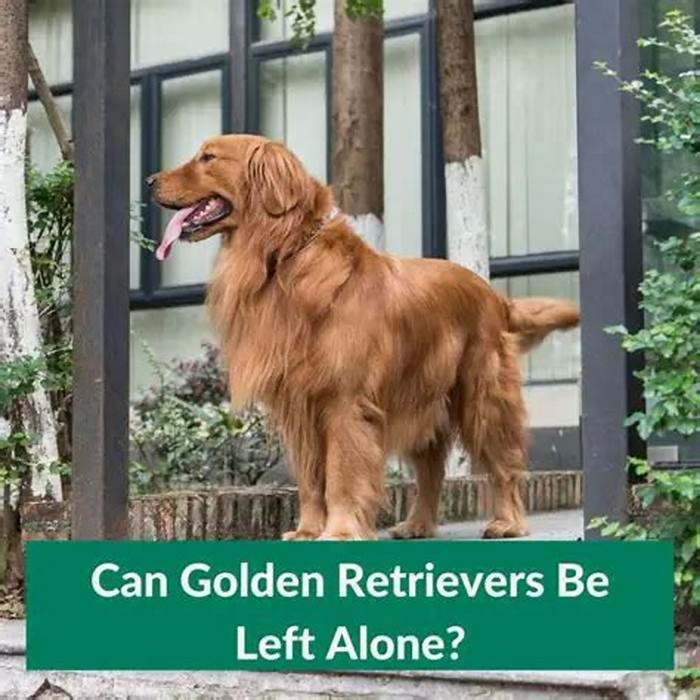
Leaving Your Golden Retriever Alone: Everything You Need to Know
How long can you leave a Golden Retriever alone?
Golden Retrievers are a very social dog breed. They love interacting with their favorite humans as well as other dogs. Unfortunately, being left alone is not high on their list of favorite things. However, this does not mean that you can never leave your Golden Retriever alone; you just can't leave them alone for long periods of time. So, how long can you leave a Golden Retriever alone?
Mature Golden Retrievers should not be left alone for more than 8 hours at a time. 4-6 hours is the recommended time to leave your Golden Retriever alone. This time may lessen depending on their age and bathroom schedule.
If you are unsure how long you can leave your Golden Retriever alone based on their age, check out this handy guide!
Age of Golden Retriever & How Long to Leave them Alone
| Age | Hours |
|---|---|
| 1 month | 1 hour |
| 2 months | 1.5 hours |
| 3 months | 2 hours |
| 4-18 months | 3 hours |
| 18 months 8 years | 4-6 hours |
| 8 years | 4 hours |
| 9 years | 3 hours |
| 10-12 years | 2 hours |
This chart is a general rule of thumb for Golden Retrievers, but you should adapt it to fit your fur baby's needs.
If you are worried that your dog has separation anxiety, there are some things you can do to help them adjust to being alone.
How to help Golden Retrievers adjust to being alone
During the pandemic and quarantine, my dogs became a little too used to having me around all day, every day. Once quarantine ended, I noticed my dogs seemed depressed and just not themselves. I realized that they had forgotten how to be alone while I went to work.
My Golden Retriever was the worst of them all; he stopped eating and pretty much lived in my lap when I was home. If your dog shows these signs, you might need to help them adjust to being alone. There are many things you can do to accomplish this
Separate from them while you're home
It may be tempting to spend all of your time at home loving on your fur baby. While they clearly love the attention, it can be difficult for them when you leave. Going from constant attention and companionship to being alone can be very stressful for your dog.
Imagine going from sunny warmth to cold darkness. It is shocking and upsetting. Your dog will feel this same sensation when you leave if you don't leave their side when you're home.
I'm not saying you should ignore your dog when you're home, so they don't miss you when you're gone. Of course, you should play with your dog and love on them while you're home, but it is also good to just sit down and let them be near you without actively receiving attention.
I allow my Golden Retriever to eat his meals outside while my family eats dinner. This shows him that it's okay to be alone because I will come back eventually. Having him eat outside also prevents him from begging for food!
Since I've started letting my boy eat outside, I've noticed he's grown more confident in being away from me. Instead of curling up right next to me on the couch at night, he sometimes snoozes on the floor. But, again, this is because he's comfortable being away from me.
Knowing that he's comfortable being away from me while I'm home shows me that he is not distressed when I'm gone during the day. Giving your dog some distance while your home is the first step in helping them adjust to being alone.
Keep them entertained
The best way to decrease your dog's stress while you're away is to keep them entertained. You can do a myriad of things to keep them distracted from your disappearance.
Toys
While it may seem obvious that toys will entertain your dog, there are only some that can keep your dog entertained for long periods of time while you're away. Regular balls and stuffed toys will become incredibly boring if you aren't there to interact with them. So, I leave chew and enrichment toys with my pups while I go to work.
Chew Toys
Nylabone Chewsare one of my dog's favorite toys. These chews are bone-shaped and have different flavors depending on the pack you buy. My favorite thing about them is that they last for a long time and don't impact my dog's gut health.
Rawhide chews and other hide-based toys can break off in chunks that your dog can swallow. Not only is this a choking risk, but it can also cause serious digestive issues if a lot of it is consumed.
My dogs cannot breakNylabone Chewsinto chunks as they chew. Instead, the bone slowly wears down into soft, fine mush that is safe to ingest and won't get stuck in their intestines. These chews take a long time for my dogs to go through, I bought a pack over three months ago, and they've hardly made a dent in the bones!
My other favorite chew toy to leave with my dogs is anything made by KONG. These rubber toys are safe and durable for dogs to chew on. My Golden Retriever has had the sameKONG Tire Chew. Since he was a puppy, he is now 5 years old, and it doesn't have a mark. When he was a puppy, he would lay in his crate and gnaw on the thing all day.
Enrichment Toys
If I know I will be gone for a long time; I leave enrichment toys in my dog's kennels with them. I usually put their breakfast in whichever toy I leave, so they stay occupied but don't get overfed.
My two favorite enrichment toys are theSTELLAIRE CHERN Snuffle Matand thePet Zone IQ Treat Ball. I tend to leave the snuffle mat with my dogs when I'm away since it doesn't require a lot of movement to use. However, I like to use the treat ball to give them their meals when I'm home.
Laying the snuffle mat in their crate allows them to rummage through it when they get hungry. It also stimulates their brain by making them think and find their food in each pocket.
I use the treat ball for mealtimes because they must kick the ball around to get their food out. This keeps them moving and thinking while giving them the nutrition they need. If you use the treat ball, I recommend using it outside as the food can fly, and it requires a lot of space to move the ball around.
Music/TV
Another thing I do to keep my dogs calm while I'm away is play smooth jazz music. This may seem strange, but it really works! I even use the jazz at night to help settle my puppy down when she gets a bit crazy.
2008 study findingsperformed at the Canine Ranch Doggie Daycare showed that smooth jazz music calms dogs down, while rock music caused the dogs to become feisty and playful.
Give them a friend
If your home and budget allow for it, the best present you can give your dog is another doggy friend. Dogs are pack animals, and they don't like being alone. So, having more than one dog gives your pups a constant friend and companion to share their life with.
This other friend doesn't have to be a dog! If you find the right cat or even bird, your dog may befriend them and add them to their "pack"! However, another dog is the best companion for your dog.
Medication
If your dog is continually messing up the house while you're away and seems anxious when you are home, this may be signs of separation anxiety. If you have already exhausted the above methods, I recommend speaking to your Veterinarian.
Your Veterinarian may prescribe an anti-anxiety medication for your dog. Giving this medication before leaving for work may help your dog stay calm while you're away.
How long can they go without going to the bathroom?
Adult Golden Retrievers can hold their pee for up to 12 hours if needed. However, an adult dog should be able to relieve themselves at least every 8 hours. If a Golden Retriever is forced to hold their pee for longer than 12 hours on a regular basis, it can lead to urinary tract infections.
The most significant factor in determining how long a Golden Retriever can go without going to the bathroom is their age. Check out this chart for a breakdown:
Age & Bathroom Frequency
| Age | Bathroom Frequency |
|---|---|
| Younger than 6 months | 1-3 hours |
| Older than 6 months | 2-4 hours |
| Less than 7 years | 6-8 hours |
| Older than 7 years | 4-6 hours |
| Older than 12 years | 2-4 hours |
| 8 years | 4 hours |
| 9 years | 3 hours |
| 10-12 years | 2 hours |
This guide is a general rule of thumb for most Golden Retrievers that should be adapted to each dog's individual needs.
If you cannot consistently return home to let your Golden Retriever relieve itself in its respective time limit, I recommend subscribing to a dog walking service. Services such as Wag pair you with local dog walkers that will come walk your dog for you. Not only does this give you peace of mind while you are away from home, but it also gives your dog time to socialize and relieve themselves.
It is extremely important your Golden Retriever has the chance to relieve itself in accordance with the chart above. If your Golden Retriever is forced to hold their urine for extended periods of time on a regular basis, they may develop urinary tract infections.
Symptoms of a UTI
- Frequent urination
- Strain when urinating
- Crying or whimpering when urinating
- Blood in urine
- Frequent licking of genitals
- Dripping urine
If your Golden Retriever is displaying these signs, you may want to order anat-home UTItest and consult with your Veterinarian.
How many hours do Golden Retrievers sleep?
Golden Retrievers usually sleep between 12-14 hours per 24-hour cycle. Puppies, seniors, and lazy Golden Retrievers may sleep up to 18 hours a day. However, your dog won't sleep all of these hours in a row; instead, they will sleep in between bursts of energy throughout the day.
There are many factors that go into how long your Golden Retriever sleeps in a day.
- Age is a significant factor in how long your Golden Retriever will sleep. Puppies and elderly dogs can sleep as much as 18 hours in a single 24 hour period.
- Nutrition can be another factor in how long your dog sleeps. If your Golden Retriever is not getting the proper nutrients from their diet, they may become lethargic and sleep more often. On the other hand, if their food has a lot of sugar, they may sleep less. I recommendRoyal Canin Golden Retriever Adult Dog Foodfor mature dogs andRoyal Canin Golden Retriever Puppy Foodfor young Goldens.
- Temperature can also affect how much your dog sleeps. Temperatures that are too hot or too cold can cause your Golden Retriever to sleep more.
Leaving your Golden Retriever alone for too long
However much you and your pup wish you could, you can't stay home all day and play with your puppy. So it is understandable that you need to leave for work and run errands that your puppy cannot accompany you on.
It's important to teach your Golden Retriever puppy how to be alone (we'll get to that later), but it is also important that your puppy isn't left alone for too long. Leaving your puppy alone for extended periods of time can cause your puppy to develop both mental and physical ailments.
Puppies need to be socialized and interacted with so they develop into well-behaved dogs. If you are constantly leaving your puppy alone, they will miss out on this key stimulation vital for their development. In addition, your puppy may develop separation anxiety or destructive behaviors if left by itself on a regular basis.
Your puppy may not develop a healthy muscle mass from a physical perspective if left alone too often. In addition, if left alone without a way to relieve itself, your puppy could develop a UTI.
It's okay to leave your puppy alone for a fair amount of time and crucial in raising a well-rounded dog. However, your puppy shouldn't be left alone too long to prevent physical and psychological issues from developing.
Teaching your Golden Retriever puppy to be alone
Teaching your Golden Retriever puppy to be alone is a pretty similar process to helping an adult dog adjust to being alone. Distancing yourself at home, keeping them entertained while away, and using music are still applicable to teaching a puppy to be alone.
The most significant difference in teaching a puppy is that you have to add one more step! Giving your puppy a safe place that belongs to them is the most important step in teaching them to be alone.
Each of my dogs has their own crate where they eat some of their meals and stay in while I'm at work. Each crate is big enough for them to stand up, lay down, and turn around in, which is the recommended size for dog crates. My dogs love their crates and even hang out in them with the doors open while I'm home.
Since my dogs have had access to their crate their entire lives, it is essentially their own "room" of sorts, so they aren't stressed to be in them when I leave. Although for a Golden Retriever puppy, I recommend buying alarge dog cratewhen you get them, you can use cardboard or another material to block off the crate, so it is the correct size as your puppy grows.
Feed your puppy all of its meals in their crate and encourage them to go in it while you're home. I leave their chews in their kennels so they will go in to get them. Once your puppy learns that their crate is their space, they will be comfortable staying in it while you leave for work and will be okay while you're gone.
Guidelines for leaving a Golden Retriever puppy alone
Leaving your Golden Retriever puppy alone is a scary but inevitable step in their life. However, it doesn't have to be as frightening as it sounds. If you follow these simple tips, both your puppy and your house will be okay when you leave!
- Leave your puppy in a confined space that they are comfortable in.
- Provide your puppy with plenty of chews and toys to keep them occupied while you're away.
- Don't stay away too long. Build up your puppy's tolerance for being alone.
- Take your puppy to the bathroom before you leave.
- Give them attention when you come home.
Final Thoughts
Leaving your Golden Retriever alone doesn't have to be scary if you follow this simple guide:
- An adult Golden Retriever shouldn't be left alone for more than 8 hours a day, and it's better to limit the time to 6 hours.
- Puppies and elderly dogs need to be let out more often than adults and should not be left alone as long as an adult dog.
- To help your Golden Retriever adjust to being alone, distance yourself while at home, provide them with plenty of toys, play some smooth jazz, and consult your vet if all else fails.
- Adult Golden Retrievers should be able to relieve themselves every 8 hours, while puppies and seniors need to be relieved every 4 hours.
- The average Golden Retriever sleeps anywhere from 12-14 hours a day.
- Puppies, seniors, and lazy Golden Retrievers may sleep up to 18 hours a day.
- To avoid physical and psychological issues, you shouldn't leave your Golden Retriever puppy alone for too long.
- The best way to teach your Golden Retriever puppy to be alone is to give them their own safe place, such as a crate or kennel.

